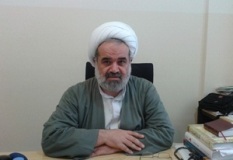Consultation…My relative’s husband is refusing to divorce her, and he told her: Live your life the way you want and I will live my life the way I want. She consulted a lawyer and he advised her to embrace Christianity to solve her problem, for by that she would become forbidden to her husband and she would not need divorce anymore. What is your opinion regarding the suggested solution?Answer…The way the husband is treating his wife and refusing to divorce her is completely unjustified and unacceptable, for the husband is held responsible by the Shariah of two things and two things only:- Either to stay with his wife and lead a normal marital life, whereby he fulfills all her marital rights incumbent on him in terms of the alimony and sexual relation and the like…- Or to divorce her, for he is not allowed to leave her stranded; i.e. neither truly married nor divorced, for Allah says: “Then keep (them) in good fellowship or let (them) go with kindness” (02: 229), and: “But be not disinclined (from one) with total disinclination, so that you leave her as it were in suspense” (04: 129).As for what the lawyer proposed, it is a mere escape from a problem to another more complicated problem, for how can he accept for a Muslim woman to turn to Christianity just to solve a problem, knowing that to embrace a religion, one should be completely convinced about it. Actually, the same applies to a Christian who wishes to turn to Islam just to solve a problem. Changing one’s religion is not a means to solve any problem, be it personal, legal or otherwise. Lawyers in general should take notice of the religious rulings before proposing such solutions, and they know better that solving such problems is not restricted to this way.Sent by: HishamResponse by: Sheikh Youssef Sbeity, a religious scholar and researcher, and a member of the Juristic Office of the Institution of the late Religious Authority, Sayyed Muhammad Hussein Fadlullah (ra)/129
source : Bayynat
Saturday
21 September 2013
8:30:00 PM
465431
Is a Muslim woman allowed to embrace Christianity just to be divorced from her husband?

